Karl Münchinger - The Schubert Recordings (1956)
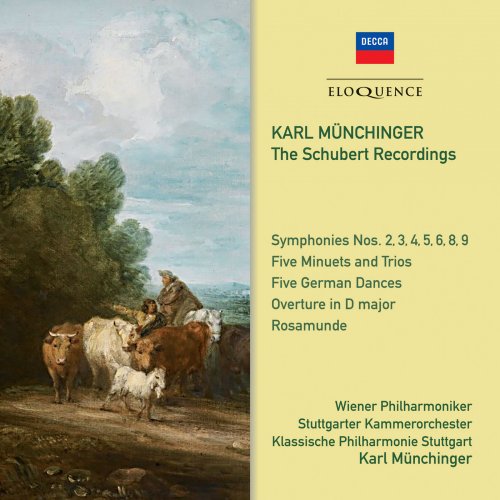
Artist: Karl Münchinger, Wiener Philharmoniker, Stuttgarter Kammerorchester, Klassische Philharmonie Stuttgart
Title: The Schubert Recordings
Year Of Release: 1956
Label: Universal Music Australia Pty. Ltd.
Genre: Classical
Quality: flac lossless (tracks)
Total Time: 05:01:33
Total Size: 1.34 gb
WebSite: Album Preview
TracklistTitle: The Schubert Recordings
Year Of Release: 1956
Label: Universal Music Australia Pty. Ltd.
Genre: Classical
Quality: flac lossless (tracks)
Total Time: 05:01:33
Total Size: 1.34 gb
WebSite: Album Preview
01. Schubert: Symphony No.2 in B flat, D.125-1. Largo-Allegro vivace
02. Schubert: Symphony No.2 in B flat, D.125-2. Andante
03. Schubert: Symphony No.2 in B flat, D.125-3. Menuetto (Allegro vivace)
04. Schubert: Symphony No.2 in B flat, D.125-4. Presto
05. Schubert: Symphony No.3 in D, D.200-1. Adagio maestoso-Allegro con brio
06. Schubert: Symphony No.3 in D, D.200-2. Allegretto
07. Schubert: Symphony No.3 in D, D.200-3. Menuetto (Vivace)
08. Schubert: Symphony No.3 in D, D.200-4. Presto. Vivace
09. Schubert: Symphony No.4 in C minor 'Tragic', D.417-1. Adagio molto-Allegro vivace
10. Schubert: Symphony No.4 in C minor 'Tragic', D.417-2. Andante
11. Schubert: Symphony No.4 in C minor 'Tragic', D.417-3. Menuetto: Allegro vivace
12. Schubert: Symphony No.4 in C minor 'Tragic', D.417-4. Allegro
13. Schubert: Symphony No.5 in B flat, D.485-1. Allegro
14. Schubert: Symphony No.5 in B flat, D.485-2. Andante con moto
15. Schubert: Symphony No.5 in B flat, D.485-3. Menuetto (Allegro molto)
16. Schubert: Symphony No.5 in B flat, D.485-4. Allegro vivace
17. Schubert: Symphony No.6 in C, D.589-"The Little"-1. Adagio-Allegro
18. Schubert: Symphony No.6 in C, D.589-"The Little"-2. Andante
19. Schubert: Symphony No.6 in C, D.589-"The Little"-3. Scherzo (Presto)
20. Schubert: Symphony No.6 in C, D.589-"The Little"-4. Allegro moderato
21. Schubert: Five Minuets and Trios for String Quartet, D 89-arranged for string orchestra-1. in C minor
22. Schubert: Five Minuets and Trios for String Quartet, D 89-arranged for string orchestra-2. in F major
23. Schubert: Five Minuets and Trios for String Quartet, D 89-arranged for string orchestra-3. in D minor
24. Schubert: Five Minuets and Trios for String Quartet, D 89-arranged for string orchestra-4. in G major
25. Schubert: Five Minuets and Trios for String Quartet, D 89-arranged for string orchestra-5. in C major
26. Schubert: 5 German Dances, D90-1. in C major
27. Schubert: 5 German Dances, D90-2. in G major
28. Schubert: 5 German Dances, D90-3. in D major
29. Schubert: 5 German Dances, D90-4. in F major
30. Schubert: 5 German Dances, D90-5. in C major
31. Schubert: Symphony No.8 in B minor, D.759-"Unfinished"-1. Allegro moderato
32. Schubert: Symphony No.8 in B minor, D.759-"Unfinished"-2. Andante con moto
33. Schubert: Symphony No.9 in C, D.944-"The Great"-1. Andante-Allegro ma non troppo
34. Schubert: Symphony No.9 in C, D.944-"The Great"-2. Andante con moto
35. Schubert: Symphony No.9 in C, D.944-"The Great"-3. Scherzo (Allegro vivace)
36. Schubert: Symphony No.9 in C, D.944-"The Great"-4. Allegro vivace
37. Schubert: Overture in D, D.556
38. Schubert: Rosamunde, D.797 (Incidental music to Helmina von Chézy's Play)-Overture
39. Schubert: Rosamunde, D.797 (Incidental music to Helmina von Chézy's Play)-Entr'acte No. 1
40. Schubert: Rosamunde, D.797 (Incidental music to Helmina von Chézy's Play)-Ballet Music No. 1-Andante un poco assai
41. Schubert: Rosamunde, D.797 (Incidental music to Helmina von Chézy's Play)-Entr'acte No. 2
42. Schubert: Rosamunde, D.797 (Incidental music to Helmina von Chézy's Play)-Romance: "Der Vollmond strahlt auf Bergeshöh'n"
43. Schubert: Rosamunde, D.797 (Incidental music to Helmina von Chézy's Play)-Chorus Of Spirits: "In der Tiefe wohnt das Licht"
44. Schubert: Rosamunde, D.797 (Incidental music to Helmina von Chézy's Play)-Entr'acte No. 3-Andantino
45. Schubert: Rosamunde, D.797 (Incidental music to Helmina von Chézy's Play)-Shepherd's Melody
46. Schubert: Rosamunde, D.797 (Incidental music to Helmina von Chézy's Play)-Chorus Of Shepherds: "Hier auf den Fluren...."
47. Schubert: Rosamunde, D.797 (Incidental music to Helmina von Chézy's Play)-Chorus Of Huntsmen: "Wie lebt sich's so fröhlich im Grünen"
48. Schubert: Rosamunde, D.797 (Incidental music to Helmina von Chézy's Play)-Ballet Music No. 2
Born and bred in the city, Karl Münchinger founded the Stuttgart Chamber Orchestra in the summer of 1945, and it was with this ensemble that he made recordings of Bach and other Baroque and early Classical repertoire (for Decca) that would be staples of the catalogue for decades to come. He was among the first modern performers to popularise Pachelbel’s Canon and Gigue, on a Baroque compilation that became an introduction to the world of classical music for many thousands of listeners.
His work, however, was not solely confined to his home city. His refined ear and old-school musicianship were welcome around Europe, including Vienna, where he recorded six of Schubert’s symphonies between 1959 and 1965, excluding the First, and the Ninth: the latter omission remedied by Decca in 1969, when the ‘Great’ C major was set down with the Klassische Philharmonie of Stuttgart which Münchinger had grown as an offshoot of the chamber orchestra.
The Vienna recordings were warmly welcomed at the time, for values of charm, grace and discipline which may be thought eternal in this music, whatever the passing fashions of orchestral sonority. Reviewing the Fourth and Fifth in September 1970, High Fidelity reported the ‘impeccable playing’ of the Vienna Philharmonic, ‘and the recording itself is faultless’. In general the critical reaction mirrored that of Gramophone’s reviewer in May 1968: ‘Münchinger’s Schubert performances are lively (yet never too fast) and affectionate. Both playing and recording are very good.’
These performances, never before issued together, are newly remastered and come with a prologue, in the form of German Dances, recorded in Stuttgart in 1955. There is also an epilogue to round out the conductor’s Schubert legacy: the complete incidental music to Rosamunde, set down in Vienna in 1970: a gramophone classic that has hardly left the catalogue since and was reissued by Decca fifteen years ago in its ‘Legends’ series.
‘Münchinger conducts the ‘Unfinished’ admirably, a performance notable for its wide dynamic range (which the excellent recording helps, of course). The very start, for instance, really is pp for once, while the climaxes ring out splendidly … The finale [of No. 2] is a Presto vivace and is most successfully played as such, with its second subject given delightful charm.’ Gramophone, February 1966
‘The well-known B flat entr’acte is charmingly delicate and affectionate and is beautifully played – and how marvellous the very soft tone of the Vienna strings is. The choruses of Shepherds and Huntsmen show, as well as excellent chorus singing, very good solo singers from the choir.’ Gramophone, March 1976 (Rosamunde)
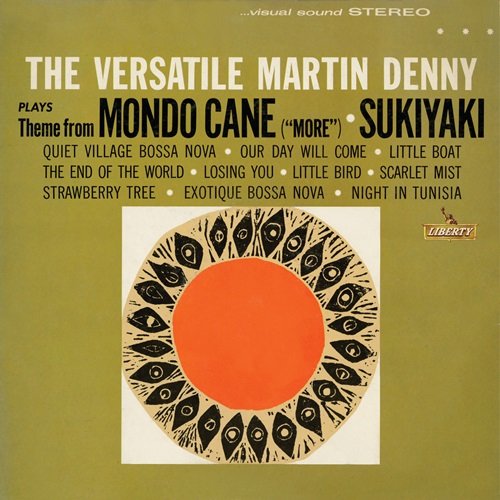
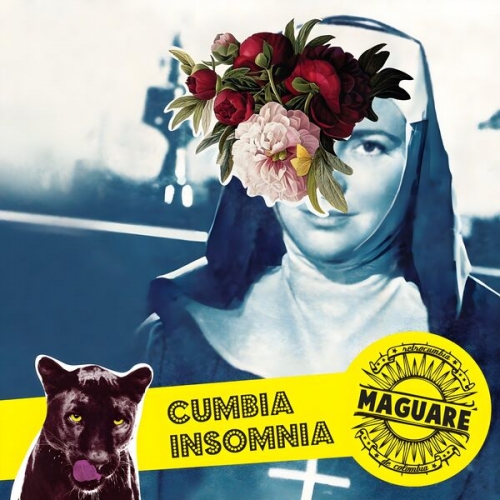


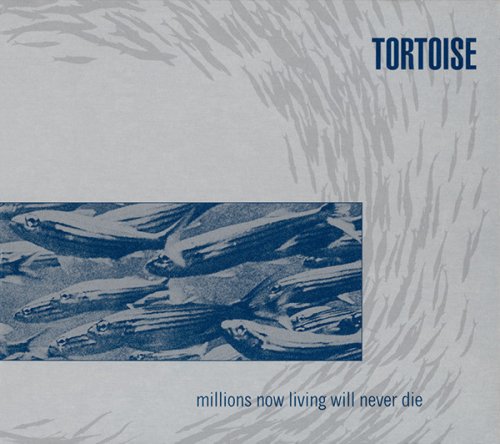
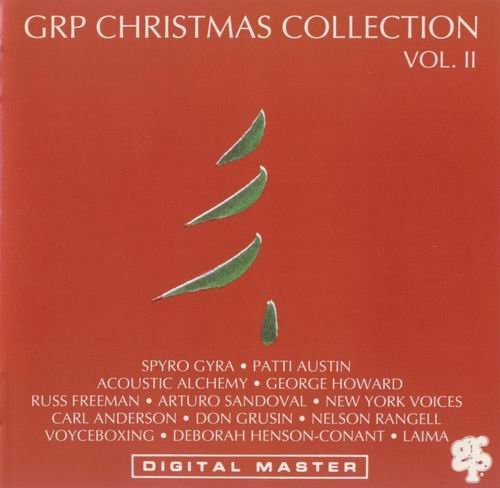
![Nipper Swing Band - Swing Christmas (The Definitive Holiday Hits) (2025) [Hi-Res] Nipper Swing Band - Swing Christmas (The Definitive Holiday Hits) (2025) [Hi-Res]](https://www.dibpic.com/uploads/posts/2025-12/1766293487_orppuisls66jc_600.jpg)
![Alma Micic - You're My Thrill (2024) [Hi-Res] Alma Micic - You're My Thrill (2024) [Hi-Res]](https://www.dibpic.com/uploads/posts/2025-12/1766493943_amyt500.jpg)
